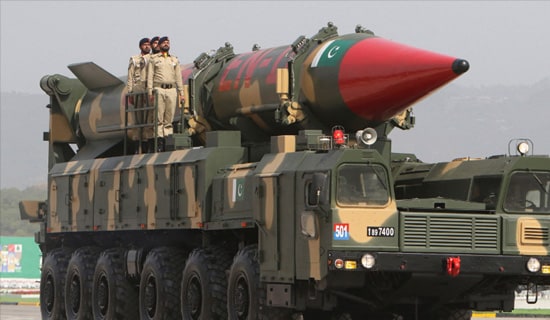From May 23 through 26, 2010, Palestinian Authority President Mahmoud 'Abbas visited Vietnam as part of a tour of southeast Asia. In his meeting with Vietnamese President Nguyen Minh Triet, he compared the struggle of the Vietnamese people to that of the Palestinian people, and expressed confidence that the Palestinians would triumph just as the Vietnamese did.
It should be noted that in the past 'Abbas was the only figure in the PLO leadership who consistently spoke against armed struggle, opposing even Yasser Arafat on this issue. At the ceremony for the signing of the peace agreement with Jordan, he even used the phrase "Palestinian terrorism," arguing that the nonviolent approach served the Palestinian cause.[1] By holding this view, he presented a contrast with other Palestinian leaders who spoke in two voices: talking of peace in some forums and of armed struggle in others. Lately, 'Abbas has begun to use this same approach; two weeks after his statements in praise of the Vietnamese struggle against the American occupier, he visited Washington, where he spoke in favor of a peaceful resolution to the Palestinian problem.
Following are excerpts from 'Abbas' statement to the Vietnamese president, and from his statements in Washington:
'Abbas in Vietnam: We Have Both Suffered Occupation, Colonialism and Oppression; You Prevailed, and So Shall We
"...My dear friend [Nguyen Minh Triet], we are comrades in struggle and fighting, and our vision of the future is one. Historically, people have always linked Palestine and Vietnam, and to this day, when people mention the Palestinian struggle they recall the struggle of the Vietnamese people. We have both suffered occupation, colonialism and oppression, but you eventually prevailed, and we are certain that, thanks to your position and your support, we shall prevail as well... "Thirty-seven years ago, after Vietnam became independent, the [Vietnamese] Foreign Minister [visited] the summit of the [Palestinian] National Council in Cairo. The entire council stood for half an hour in her honor, because our sister country [Vietnam] had received independence, and your independence gave us hope for our own independence...
SUPPORT OUR WORK

"Dear Mr. President, from the beginning of our [diplomatic] relations, there has been complete solidarity between us, and we thank you for your solidarity and for supporting the Palestinian cause in all circles. We wish the Vietnamese people progress and prosperity under the leadership of the Vietnamese Communist Party."[2]
'Abbas in Washington: Peace Is a Palestinian, Israeli and U.S. Interest
Two weeks later, on June 9, 2010, 'Abbas met with U.S. President Barack Obama in Washington. At a press conference following the meeting, he said that the Palestinians are committed to peace, which is a Palestinian interest: "We greatly appreciate President Obama's interest in, and commitment to, the launching of a political [peace] process as soon as possible. I stress to him that we will not relinquish the path [of peace], because it is a [Palestinian] interest, as well as an interest of Israel and the [rest of the] world, led by the U.S. We know that time is of an essence and we must not delay, and we emphasize our insistence and resolve to attain peace as soon as possible...
"I say to you, Mr. President, that we do not wish to incite against Israel; [rather], we wish to coexist with it, because we are looking to the future, to the establishment of an independent Palestinian state living alongside Israel in security and stability. That is why we endorse the Arab peace initiative, which has been approved by the Arab and Islamic summits, and which calls on all 57 Arab and Islamic states to recognize Israel if and when it withdraws from the occupied Arab territories...
"We know and appreciate your statements about the two-state solution being a crucial U.S. interest; this is [a position] in which we take pride, and we promise you that we will be serious [in our efforts] and will not procrastinate in attaining peace...
"As for the shift from indirect negotiations to direct ones, we are not saying that we have preconditions; we have agreed that, once progress is made in the indirect talks, we will proceed to direct ones. Today we are working, and the President is making every effort, to achieve this progress and proceed to direct negotiations."[3]
[1] See MEMRI Special Report No. 15, "Abu Mazen: A Political Profile ", April 29, 2003, Abu Mazen: A Political Profile.
[2] www.wafa.ps, May 25, 2010.
[3] Al-Hayat Al-Jadida (PA), June 10, 2010.




